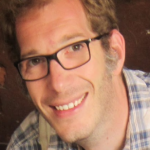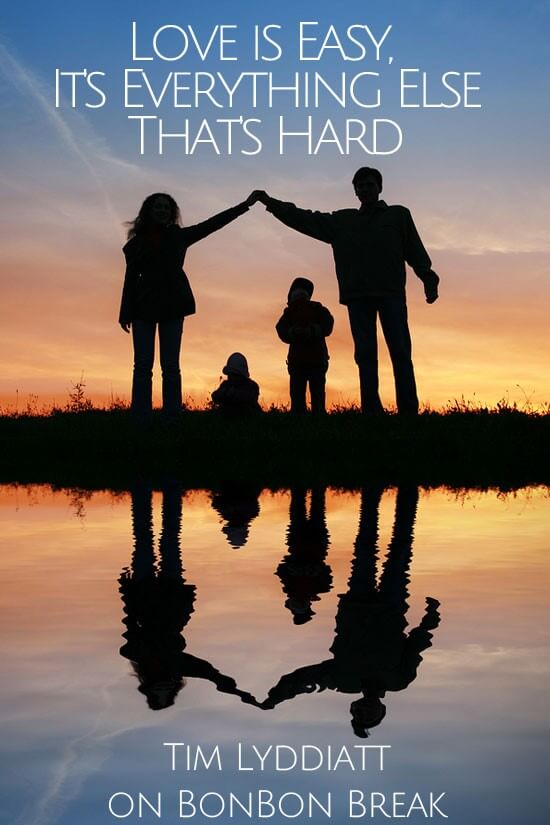Love is Easy, It’s Everything Else That’s Hard

This is the continuation of the adoption story, She’s Known as a Foundling: An Adoption Story.
The Love, that comes instantly.
From the moment I put my massive hands to her tiny outstretched fingers, she was ours, mine. Someone I would give everything for, someone I would give anything for: my health, my wealth — even my other child.
(This last is not true, and even mentioning it is surely contentious, but it’s the kind of thing you think of when you are doing the kind of thing we were doing, the kind of thing that flits and fleets through your mind, at the same time wanting to be seen and hiding also. It’s about primacy versus recency: in that cold corridor, in a cold, boring city in China’s least interesting northern province, Little was very much the most recent addition to our family. Not the first, so not the most special; but differently special by virtue of being smaller, newer: in greater need of our immediate concern.)
And when the argument is framed like that, you start asking yourself these kinds of questions: what would you do for her, what would you give? Big decisions, not very much time. But the answers come in the time it takes for fingertips to touch, for eyes to meet and a face to fully be seen.
She was beautiful, a year’s worth of fear and hope, diminished and realised. She was my family, our family: our family extended in just the way that I was always told it would be: no questions, no quibbles. She just is. And I was wrong to ever doubt it.
The love thing, that’s easy. It’s everything else that’s hard.
The Jealousy is hard, but inevitable. Like dark stone cliffs standing firm against the perennial rise and fall of some predetermined tide, The Jealousy ebbs and flows, waxes and wanes, and constantly changes direction. But it will not disappear. It stays: hard, and unforgiving; a never flinching, never closed eye upon all the decisions we have made and all the things we have done. Big wails at Small, and then Small screams at Big. They cry, they seek: with arms held up, held aloft, they seek comfort in arms much bigger than theirs. They look for consolation in that which they understand, that makes sense: that is constant. For both of them, that consolation comes in the form of mummy or daddy, in the arms that have held them since first they knew of our being here. For Big, that was seconds after she was escaped from her womb; for Little, it has been but a number of weeks. It makes no sense to either of them that the other one is here, is here to prevent those arms from holding, that consolation to come — directly, and only to them.
They cry, they seek. And we are forced to make choices. We struggle to know in which way to turn. Little — so little, so in need of our immediate concern — is easy: a hug and a stroke and the shush of our breath. Big — so much bigger, so knowing and helpful: so aware — is harder. She is fragile despite all her strength, and struggles to reconcile her love for Little and her need for love from us. She cries, and she seeks, and we offer to her all we can. But when Little falls — again — and bangs her head — again — sometimes we fail to not raise our voices and sometimes Big — too many sometimes in the few weeks it has been — is left crying and seeking, desperate to know why she is suddenly alone. Even when now she has a sister.
She laughed, and she held out her hand. Hello, she said, Ni hao.
The opposite though is as lovely as the jealousy is horrible to bear. When they play together, hug — as they have just started to do: both encircling the other with tiny arms and looks to one of us (seeking, something different now) — or make each other dizzy with giggles, that’s when you know you have made the right decision, that’s when you know that that it is all worthwhile.
Big has been excited about getting her sister since the first time we ever spoke to her about it. Her sister was real from that moment on. When, just a few days before we brought Little home, some of her classmates were excused from class to watch their older siblings sing Christmas carols under the tree outside the front gates of our school, Big was adamant that she should go too, to see her sister singing Christmas songs.
When we got off the plane and brought Little home, missing Big for five long days, Big woke up and came downstairs. She looked at Little and said: my stister, and was amazed — as we had been when we met her — that she can walk. She laughed, and she held out her hand. Hello, she said, Ni hao.
She was met with silence and not a small amount of fear. Big carried on. Gently, carefully, she brought Little into her world in a way that we, as grownups could never have conceived of doing, let alone actually pulling it off. She played, she touched, she did all the things that small children do to ensure that another small child is not excluded. She made no judgements, no assumptions: she didn’t question what was going on, just accepted that it was, and got on with doing it.
She has been raised in this country, a place where most of the other children she meets speak a different language to that which we speak at home. She has done two things to better arm herself against her reality of living here. She has learned the language far better than either of her parents, and she has learned that difference means nothing, not when there is a ball to be kicked, or there is something to climb. She has learned how to play in every language. Or in no language at all. The innocence of youth was robbed at the tower of babel.
Big has been incredible. Loving, understanding: grown up beyond the few years that she has been alive. We talk to her, and always have, and she repays the effort by speaking back to us. She has the words now, and the sense to use them wisely. She tells us things, and uses her imagination to better include Little in that which she imagines. She speaks on her phone — anything plastic that she can lift to her ear — and she invites friends for a picnic, and always mentions that Little will be coming too. She is excited to include her, excited because she is proud of her sister, is glad, and wants to show her off.
For the first week or so, Big would get really upset that Little was going to sleep. I want her to play with me. I want her to play with me now. But Little is little and she has to sleep during the day, just like you did when you were little. I don’t want her to go to sleep. She missed her, I think, even though she was just upstairs, and was worried she wouldn’t come back. Slowly though, over the few weeks that our family has been bigger than it was: grown, but feeling already as though it has always been thus, she has got used to the daytime sleeps, has got used to the idea that when Little sleeps, she gets mummy and daddy all to herself.
This post was syndicated with permission to BonBon Break Media, LLC.



